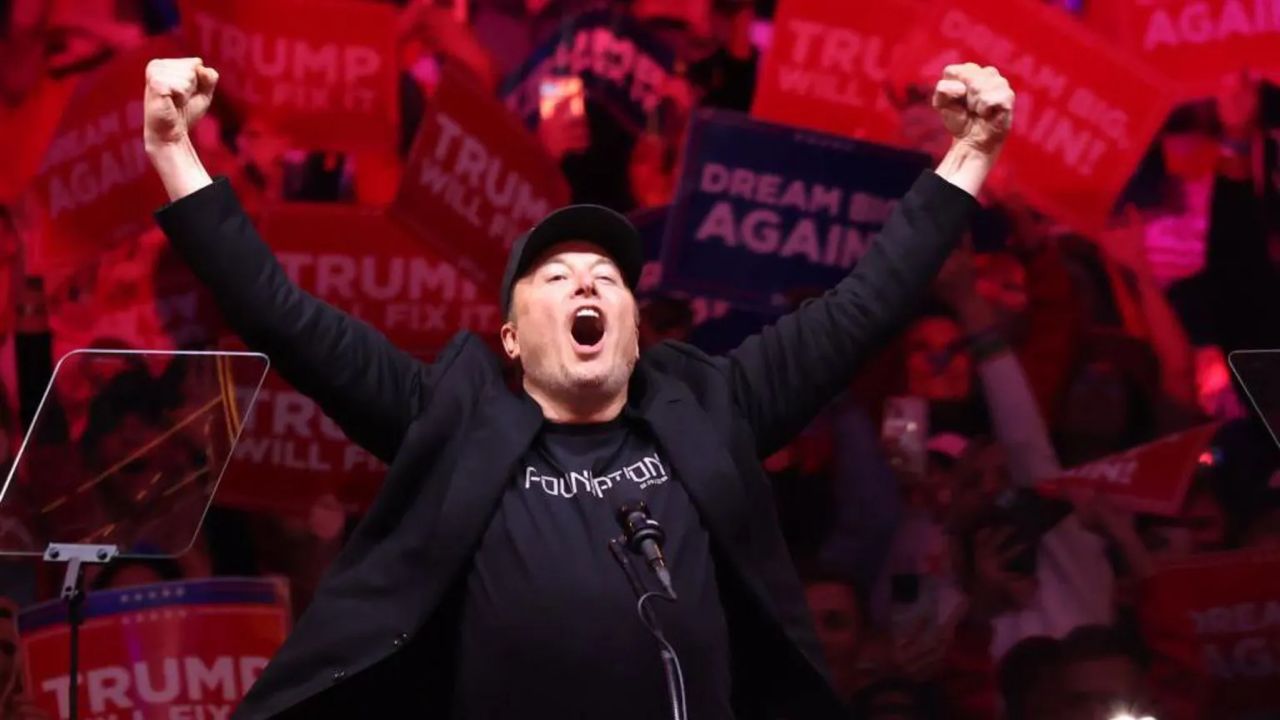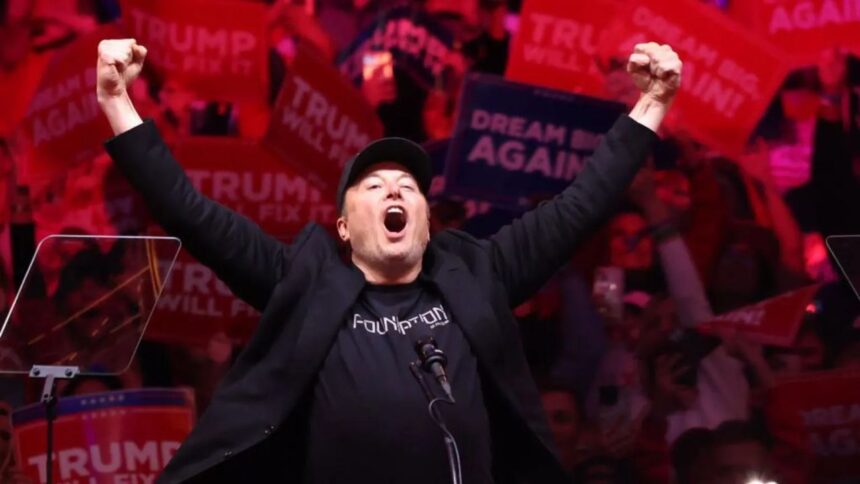By Nakiwala Barbra
Donald Trump’s return to the White House could mark a new era of influence and opportunity for one of his most high-profile supporters: Elon Musk.
The world’s richest man, Musk spent election night with Trump at Mar-a-Lago, later posting on X, “The people of America gave @realDonaldTrump a crystal clear mandate for change tonight.” In his victory speech, Trump praised Musk’s achievements, notably a successful SpaceX rocket launch, hinting at a future partnership.

Musk’s support for Trump became clear in July following an assassination attempt on the then-candidate. Since then, Musk has become a major backer, donating over $119 million to a Super PAC supporting Trump’s re-election and spearheading a voter outreach effort, including a $1 million daily giveaway in battleground states to encourage turnout. Though legally challenged, the effort proceeded, with Musk’s support for Trump solidified.
The benefits Musk stands to gain from a Trump presidency are substantial. Trump has hinted at appointing Musk to an initiative aimed at cutting government waste—what Musk has playfully dubbed the “Department of Government Efficiency,” or DOGE, a nod to the meme cryptocurrency Musk has popularized. Musk’s companies stand to benefit directly: SpaceX, which dominates government satellite launches, could secure further contracts with its strong White House connection, especially in the burgeoning field of spy satellites, where the Pentagon is poised to make significant investments.
Tesla, Musk’s electric vehicle company, could also gain from Trump’s commitment to reducing regulatory burdens. Just last month, the U.S. National Highway Traffic Safety Administration began investigating Tesla’s self-driving software, a regulatory scrutiny Musk has consistently criticized. Trump’s promise to minimize regulations could be a boon for Musk, allowing for faster innovation without the obstacles of government oversight.
Labor relations are another area where Musk could benefit. His opposition to Tesla workers’ unionization efforts has led to accusations of unfair labor practices, an issue highlighted by the United Auto Workers following Musk’s recent discussion with Trump on X. Trump’s anti-union stance aligns with Musk’s approach, potentially easing regulatory pressures and allowing Musk to manage his workforce with greater autonomy.
Lastly, Trump’s commitment to tax cuts for corporations and the wealthy is likely music to Musk’s ears. A reduction in tax rates could free up capital for Musk’s ambitious ventures, including further developments in space travel, electric vehicles, and new projects like the neural technology company Neuralink.
With a like-minded ally in Trump, Musk’s strategic support for the president could position him for a new level of influence over the intersection of technology, business, and government policy. Trump’s return to the White House thus represents more than a political win; for Musk, it’s the beginning of a partnership that could reshape the landscape of American industry.

